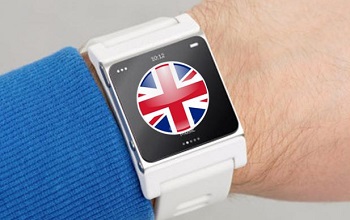A new report has indicated that certain wearables and the apps needed to use them are posing a privacy risk.
Citizen Lab, in partnership with Open Effect have now released a report that has suggested that the mobile security being provided by several popular fitness trackers are actually vulnerable to potential tampering, surveillance and tracking over the long term.
These devices are quite commonplace and are used to allow a person to monitor his or her physical activity.
The report was the result of an examination of eight different fitness trackers and the mobile apps that are needed to use them. It was conducted by Citizen Lab from the University of Toronto, and the Open Effect not-for-profit research group. They looked into these applications and wearables to determine the level of mobile security and privacy they were able to provide. The trackers the researchers examined included: the Fitbit Charge HR, Jawbone Up 2, Garmin Vivosmart, Basis Peak, Mio Fuse, Xiaomi Mi Band, Withings Pulse O2 and even the Apple Watch.
The researchers looked at a range of different mobile security measures for every device they considered.
 The factors included those pertaining to the collection and storage of data, as well as their transmission practices. What they determined was that every device, aside from the Apple Watch, persistently emitted uniqueIDs by way of their embedded Bluetooth radios. Those identifications could potentially expose the users of the wearables to location tracking over the long-term, even at times in which the device was not paired to a smartphone or tablet.
The factors included those pertaining to the collection and storage of data, as well as their transmission practices. What they determined was that every device, aside from the Apple Watch, persistently emitted uniqueIDs by way of their embedded Bluetooth radios. Those identifications could potentially expose the users of the wearables to location tracking over the long-term, even at times in which the device was not paired to a smartphone or tablet.
The report said the Apple Watch was the only one among the wearables that actually randomized its Bluetooth ID, causing it to be impossible to track that smartwatch over the long-term.
The authors of the report also pointed out that the Jawbone and Withings app was vulnerable to being exploited in order to crate fraudulent fitness records. The reason this poses a mobile security risk due to the chance that the data collected by personal fitness wearables could be used in court cases, health insurance programs and for other official reasons. Therefore, if that data has been falsified, it could create a highly undesirable risk for the users.
When compared to 2014, there was double the number of wearables purchased in the U.K. in 2015.
According to the data from the Mintel international market research firm, the number of wearable technology devices that were purchased in 2015 in the United Kingdom were about double the figure from 2014.
The company estimated that over a period of 12 months, people in the U.K. purchased 3 million wearables.
The wearable technology devices that were considered in these figures were smartwatches and fitness trackers. The total includes the devices purchased during the twelve months that followed September 2014. It’s important to note that, despite the tremendous growth that was recorded through these figures, they didn’t take into account the three months that included the holiday shopping season in 2015. Still, that period of one year still recorded a growth of 118 percent when compared to the twelve months previous to it. These figures align relatively accurately with the predictions that were made by IDC, last June.
Fitness trackers remain the most popular sub-category within the definition of wearable technology gadgets.
 IDC pointed out that the leader among fitness tracker wearables is, by far, Fitbit. It, therefore, remains the leader in wearable tech as a whole. The share fitness trackers held of the wearables market was currently estimated to be 63 percent, after having shipped 1.9 million devices last year. Comparatively, there have been 1.1 million smartwatches shipped in the United Kingdom, representing 37 percent of the market.
IDC pointed out that the leader among fitness tracker wearables is, by far, Fitbit. It, therefore, remains the leader in wearable tech as a whole. The share fitness trackers held of the wearables market was currently estimated to be 63 percent, after having shipped 1.9 million devices last year. Comparatively, there have been 1.1 million smartwatches shipped in the United Kingdom, representing 37 percent of the market.
When comparing these figures to the previous twelve month period, fitness trackers have seen their share shrinking. The year before the most recent results showed that fitness trackers made up 91 percent of all wearable tech sales. It was during that period that the Apple Watch was released into the U.K. market (April 2015), and a broad spectrum of different Android smartwatches also hit the shelves, such as the Moto 360 and Samsung Gear G2.
These provided consumers with more options outside of fitness trackers, allowing them to choose from among a larger range of wearable technology offerings. With more options, it’s easy to understand why fitness trackers lost some of their hold on the market as a whole in the United Kingdom.
 The factors included those pertaining to the collection and storage of data, as well as their transmission practices. What they determined was that every device, aside from the Apple Watch, persistently emitted uniqueIDs by way of their embedded Bluetooth radios. Those identifications could potentially expose the users of the wearables to location tracking over the long-term, even at times in which the device was not paired to a smartphone or tablet.
The factors included those pertaining to the collection and storage of data, as well as their transmission practices. What they determined was that every device, aside from the Apple Watch, persistently emitted uniqueIDs by way of their embedded Bluetooth radios. Those identifications could potentially expose the users of the wearables to location tracking over the long-term, even at times in which the device was not paired to a smartphone or tablet.
 IDC pointed out that the leader among fitness tracker wearables is, by far, Fitbit. It, therefore, remains the leader in wearable tech as a whole. The share fitness trackers held of the wearables market was currently estimated to be 63 percent, after having shipped 1.9 million devices last year. Comparatively, there have been 1.1 million smartwatches shipped in the United Kingdom, representing 37 percent of the market.
IDC pointed out that the leader among fitness tracker wearables is, by far, Fitbit. It, therefore, remains the leader in wearable tech as a whole. The share fitness trackers held of the wearables market was currently estimated to be 63 percent, after having shipped 1.9 million devices last year. Comparatively, there have been 1.1 million smartwatches shipped in the United Kingdom, representing 37 percent of the market.